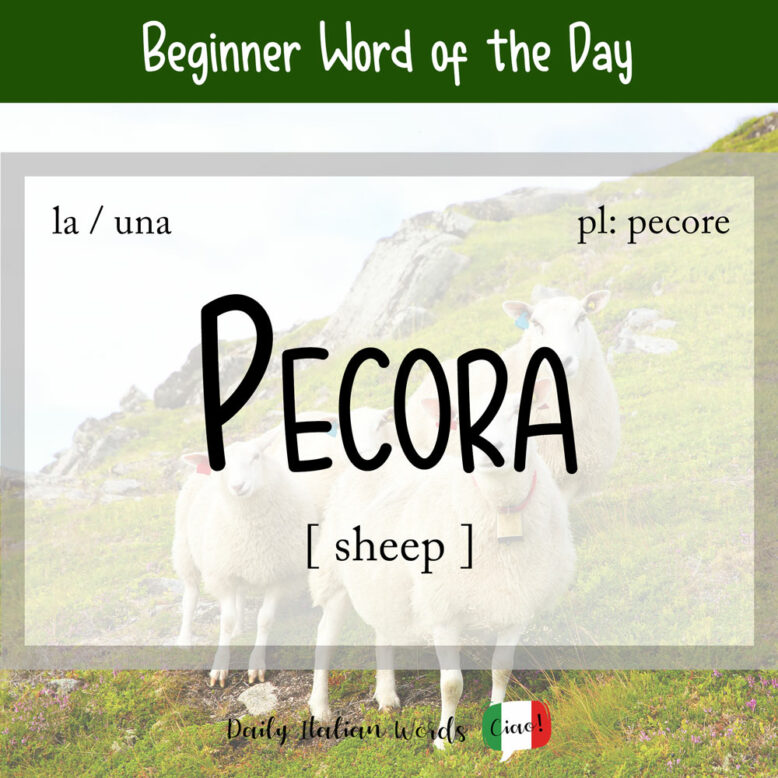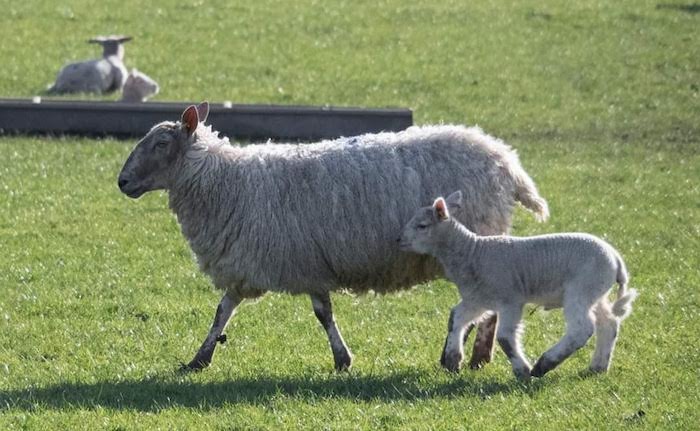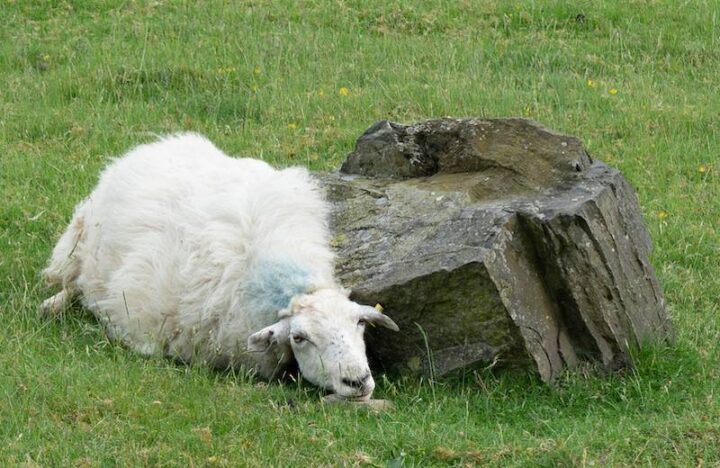The word pecora (feminine, plural: pecore) is the common name for all bovine mammals of the genus Ovis, comprising six wild species and numerous domestic breeds. It is also the specific term for the female adult sheep.

The male is known as montone or ariete (ram) whereas the offspring is called agnello (lamb) up to one year of age.
La pecora sta pascolando sulla collina.
The sheep is grazing on the hill.

The generic term carne ovina (sheep meat) refers to any kind of edible meat that comes from a sheep including abbacchio (meat of a suckling lamb), agnello (lamb), montone (mutton) and castrato (meat of a castrated male).
In a figurative sense, pecora can also denote someone who is silly, cowardly or submissive, or someone who allows strong-willed people walk all over them.
Along with the augmentative pecorone (big sheep), pecora may also function as a derogatory term for someone who mindlessly follows the crowd or a particular trend, much like the word lemming in English.
Siete una massa di pecoroni! Ragionate con la vostra testa per una volta!
You’re a bunch of lemmings! Think for yourselves for once!
Another very common term that derives from pecora is the diminutive pecorella (little sheep). In addition to referring to a small or young sheep, it also has two figurative meanings: a faithful Christian follower or a small white cloud whose appearance resembles a sheep!

Expressions using the word ‘pecora’
Chi pecora si fa, il lupo se la mangia
Literal translation: Those who act like a sheep will be eaten by the wolf
English meaning: If you allow yourself to be weak, you will suffer harmful consequences
Meglio vivere un giorno da leone che cent’anni da pecora
Literal translation: Better to live a day as a lion than one hundred as a sheep
English meaning: It’s better to be brave than live in fear
Un cuore di pecora
Literal translation: a sheep’s heart
English meaning: cowardly
Essere la pecora nera
Literal translation: to be the black sheep
English meaning: to be the black sheep
Heather Broster is a graduate with honours in linguistics from the University of Western Ontario. She is an aspiring polyglot, proficient in English and Italian, as well as Japanese, Welsh, and French to varying degrees of fluency. Originally from Toronto, Heather has resided in various countries, notably Italy for a period of six years. Her primary focus lies in the fields of language acquisition, education, and bilingual instruction.


